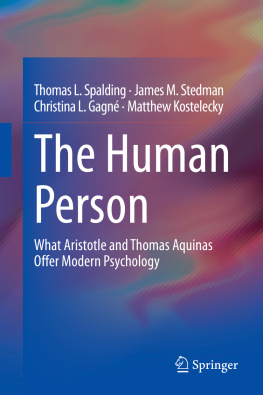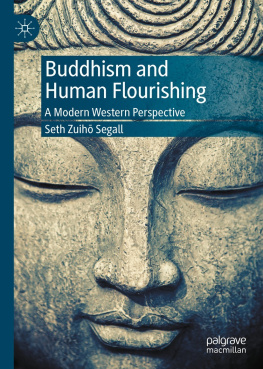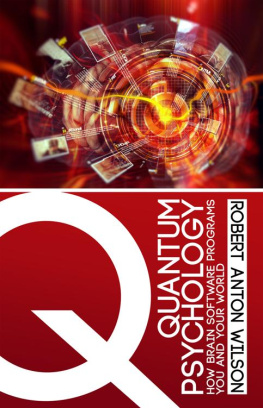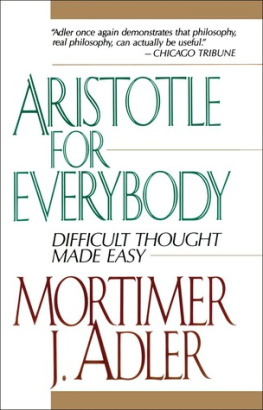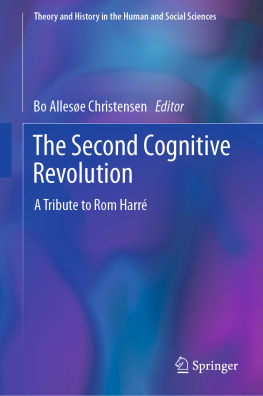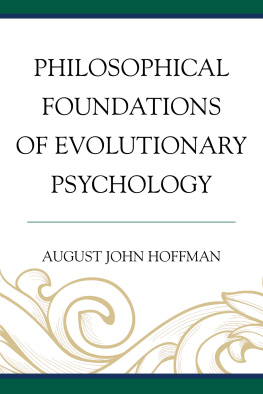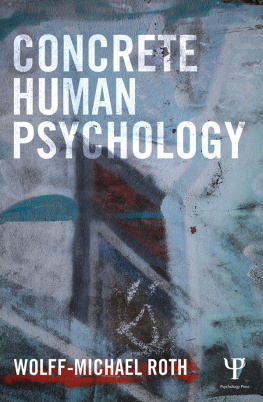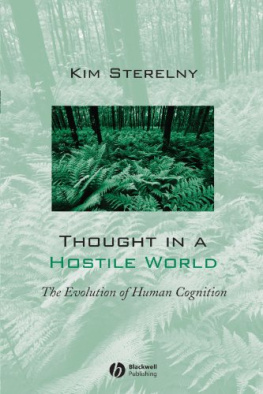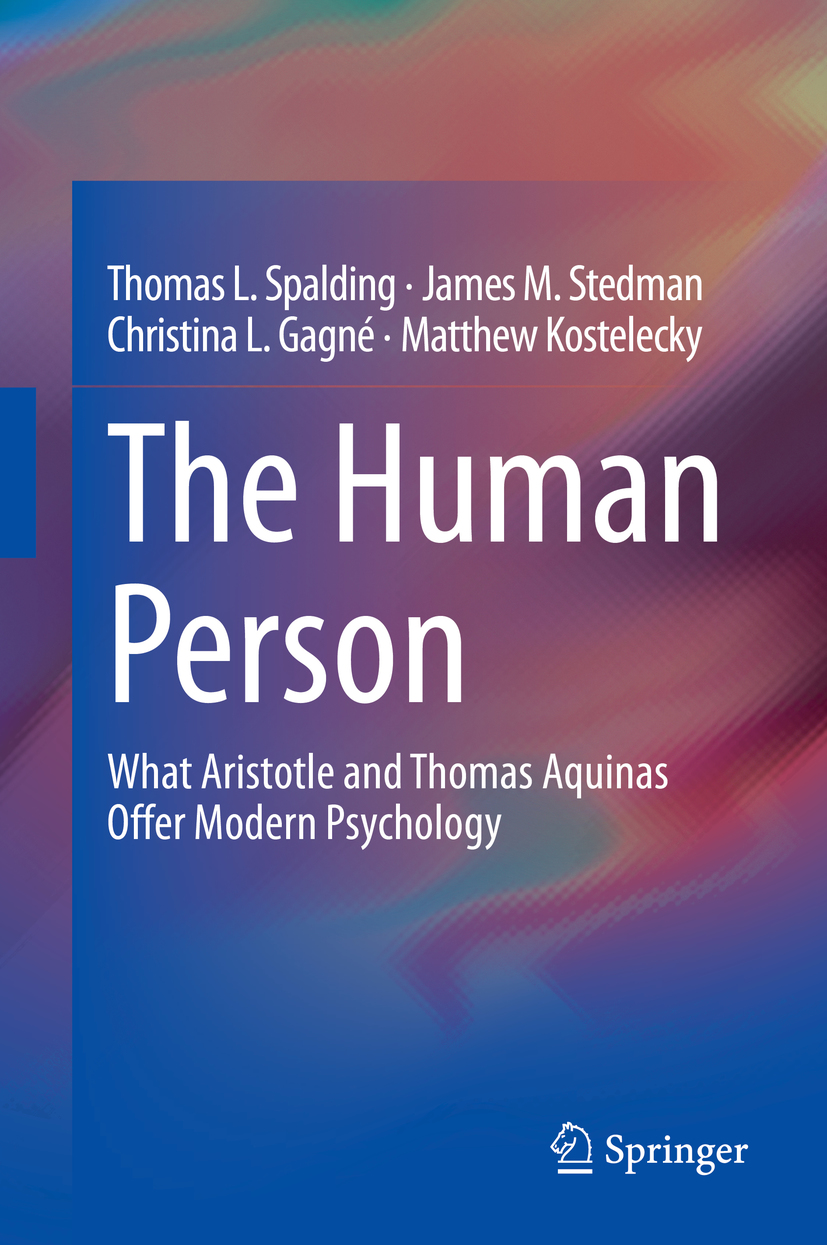Thomas L. Spalding
Department of Psychology, University of Alberta, Edmonton, AB, Canada
James M. Stedman
The University of Texas Health Science Center at San Antonio, San Antonio, TX, USA
Christina L. Gagn
Department of Psychology, University of Alberta, Edmonton, AB, Canada
Matthew Kostelecky
St. Josephs College at the University of Alberta, Edmonton, AB, Canada
ISBN 978-3-030-33911-1 e-ISBN 978-3-030-33912-8
https://doi.org/10.1007/978-3-030-33912-8
Springer Nature Switzerland AG 2019
This work is subject to copyright. All rights are reserved by the Publisher, whether the whole or part of the material is concerned, specifically the rights of translation, reprinting, reuse of illustrations, recitation, broadcasting, reproduction on microfilms or in any other physical way, and transmission or information storage and retrieval, electronic adaptation, computer software, or by similar or dissimilar methodology now known or hereafter developed.
The use of general descriptive names, registered names, trademarks, service marks, etc. in this publication does not imply, even in the absence of a specific statement, that such names are exempt from the relevant protective laws and regulations and therefore free for general use.
The publisher, the authors, and the editors are safe to assume that the advice and information in this book are believed to be true and accurate at the date of publication. Neither the publisher nor the authors or the editors give a warranty, expressed or implied, with respect to the material contained herein or for any errors or omissions that may have been made. The publisher remains neutral with regard to jurisdictional claims in published maps and institutional affiliations.
This Springer imprint is published by the registered company Springer Nature Switzerland AG
The registered company address is: Gewerbestrasse 11, 6330 Cham, Switzerland
Preface
This book is something of an oddityit is the outcome of a collaboration among two cognitive psychologists, a clinical psychologist, and a philosopher (an unusual grouping by pretty much anyones standards) trying to come to a common understanding of how psychology as a discipline can be unified such that the discipline provides a full picture of the human. Each of us, on their own and for their own reasons, had become interested in the philosophical tradition associated with Aristotle and Thomas Aquinas (and others), not just as an historical school to be studied, but as a living philosophical approach that could be applied to particular questions and issues in psychology. As we each, and in various combinations, worked on such particular questions, it seemed (to each of us) that the Aristotelian-Thomistic (A-T) tradition offered much that we felt was missing in modern psychology more generally. Writing this book has only reinforced our belief that A-T philosophy does indeed have much to offer, but also that psychology has much to offer in further developing a living, contemporary, A-T philosophy.
Given the nature of our main claim (i.e., that psychology would benefit by taking A-T philosophy seriously), it is inevitable that the book would appear, in some sense, highly critical of modern psychology. But, we are far from the first to note the general lack of unity in psychology and the weaknesses to which this lack of unity gives rise. Indeed, these critiques around the lack of unity in psychology arise every few years, with greater or lesser angst, and have from the very early years of the discipline. The critique has rarely been followed by any action toward more unity. In our view, the problem is that the critiques, important as they are, are often too focused on psychology, whereas we believe that the more fundamental problem is that the disunity in psychology arises out of conflicting philosophical underpinnings in different areas of the discipline. In addition, unlike some historical attempts at unifying psychology, we have been very careful about two issues. The first is that much of the day-to-day work of psychologists is relatively insulated from the philosophical underpinnings of the field. As such, most empirical psychological work is not impugned by our critique. Second, we have been at great pains to try to be clear that, in our view, unifying psychology at a philosophical level (making use of A-T concepts) extends to all areas of psychology: We are not interested in ruling out any area of psychology. We are particularly interested in avoiding many of the science vs. not science arguments that have roiled psychology since its earliest days. We see A-T philosophy as offering the best basis for doing so.
We want to be clear that it is the potential that we see in a more unified psychology that is the main motivation of our work: If we did not believe in the importance of psychology as a discipline, we would not have bothered with writing this book. Our critique and proposal for unity is only worthwhile, in our own eyes, because we truly believe that psychologyall of psychologyholds real importance in the modern world. Failure to understand the truly human will be a failure to solve human problems.
We hope that many people will find this book of interest: Psychologists, whether academic or professional, philosophers of mind, philosophers interested in the A-T tradition, cognitive scientists, students of psychology or philosophy or of allied fields. With such a broad audience in mind, we have intentionally eschewed some of the more typical trappings of a philosophy or psychology monograph: We have used no footnotes and have kept our citations to a (relative) minimum. We do not pretend to have presented any area of psychological literature in detail, nor have we presented A-T ideas in anything like the level of detail that one would expect to find in a dedicated philosophy book. In addition, we have been highly selective in presenting aspects of both A-T philosophy and psychology: We do not pretend that we have laid out every area of psychology that could benefit from thinking about A-T philosophy, or every area of A-T philosophy that might have important application to psychology. Instead, we have tried to identify and show some possibilities for the next generation of scholars to develop, while trying to present the A-T tradition in just enough detail for even quite philosophically nave readers to understand and see the kinds of connections we believe exist. Indeed, every chapter here could probably be developed into a book in its own right. It is our hope that they will.
Thomas L. Spalding
James M. Stedman
Christina L. Gagn
Matthew Kostelecky
Edmonton, AB, Canada San Antonio, TX, USA Edmonton, AB, Canada Edmonton, AB, Canada
Acknowledgments
The authors are grateful to theJournal of Mind and Behaviorfor permission to use elements of Stedman, Kostelecky, Spalding, and Gagn (2017) in Chap.. The section A-T Cognition was adapted, in part, from the section The Aristotelean-Thomistic Philosophical Model, pp. 195200, in Stedman, J. M., Kostelecky, M., Spalding, T. L., & Gagn, C. L. (2017). Animal cognition: An Aristotelian-Thomistic Perspective.

